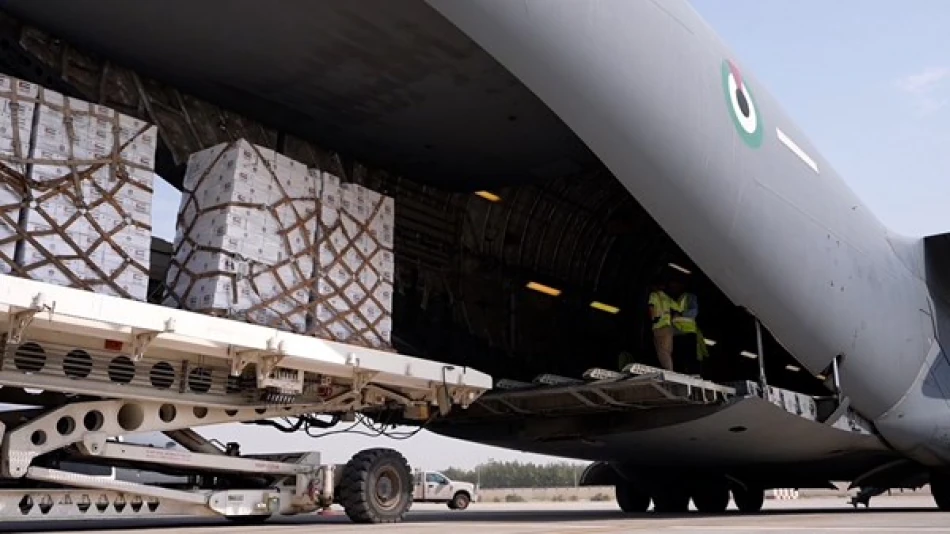
UAE Airlifts Over 105 Tons of Aid to Afghanistan Amid Ongoing Humanitarian Efforts
UAE Launches Major Relief Operation for Afghanistan Earthquake Victims
The United Arab Emirates has mobilized a comprehensive air and sea relief corridor to Afghanistan following a devastating earthquake in the country's eastern regions. Three aircraft carrying over 105 tons of food supplies departed today, marking the beginning of an expanded humanitarian campaign that includes naval vessels loaded with emergency aid. The operation, ordered directly by UAE President Sheikh Mohammed bin Zayed Al Nahyan, demonstrates the Gulf nation's growing role as a regional humanitarian hub.
Swift Response to Natural Disaster
The UAE's Joint Operations Command coordinated the immediate deployment of relief aircraft, with additional humanitarian ships being prepared for departure. The multi-pronged approach reflects lessons learned from previous disaster response operations, where combining air and sea logistics proved more effective than relying on single delivery methods.
Afghanistan's mountainous terrain and damaged infrastructure following the earthquake make aerial deliveries particularly crucial for reaching remote affected areas. The eastern provinces, where the earthquake struck, are among Afghanistan's most challenging regions for humanitarian access.
Strategic Humanitarian Diplomacy
Regional Leadership in Crisis Response
This operation positions the UAE alongside other Gulf states like Saudi Arabia and Qatar in leveraging humanitarian aid as a tool of soft power diplomacy. The Emirates has consistently used disaster relief to maintain diplomatic relationships across ideological divides, including with Afghanistan's Taliban government despite international sanctions and recognition issues.
The timing is significant as Afghanistan faces multiple crises beyond natural disasters. The country struggles with economic collapse, banking restrictions, and limited international aid since the Taliban's return to power in 2021. The UAE's direct assistance helps fill critical gaps while other nations remain politically constrained.
Operational Advantages
The UAE's strategic geographic location and advanced logistics infrastructure make it an ideal staging ground for humanitarian operations. Dubai's airports and Jebel Ali Port serve as natural distribution hubs for emergency supplies destined for South Asia and the broader region.
Unlike Western aid operations that often face bureaucratic delays and political considerations, Gulf states can deploy assistance more rapidly. This operational speed proves crucial in earthquake response, where the first 72 hours determine survival rates for trapped victims.
Broader Implications for Regional Stability
The UAE's sustained engagement with Afghanistan serves multiple strategic purposes beyond humanitarian concerns. Maintaining relationships with Afghan authorities helps monitor regional security threats, including terrorism and drug trafficking that could affect Gulf states.
Additionally, the operation reinforces the UAE's position as a responsible regional power capable of independent foreign policy decisions. While Western nations debate recognition and engagement strategies with Taliban-controlled Afghanistan, the Emirates demonstrates practical diplomacy focused on human welfare over political ideology.
This approach mirrors the UAE's broader foreign policy evolution, where humanitarian leadership serves as a foundation for economic and diplomatic influence across emerging markets and conflict zones.
Most Viewed News

 Layla Al Mansoori
Layla Al Mansoori






